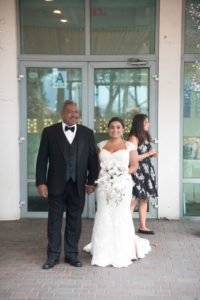Marianne Scott
Washington, DC
At least strangers no longer blurt out “no, you aren’t black,” as they did for years. My skin is lighter than most whites and quite freckled. My curls are “good” – large ringlets. Instead, people reveal their own stereotypes when they tell me I don’t talk black. As if there was only one black accent; as if I can’t hear know how I talk.
I am biracial. My father is a very light-skinned black man and my mother a fair white woman. Growing up in the 1970s in Washington, DC being biracial was not really an option. Sometimes I could choose to be “mixed” or was derided as “mulatto” but mostly I had to identify one way or the other. I always chose black because the extended family that embraced me was black and because in the Chocolate City, black was beautiful. I have always had one foot in black American culture by heritage and choice, and one foot in white American culture because that is how everyone sees me.
So how do I sound? I have lived in DC, California, Mexico, Guatemala, and Kenya. My speech adjusts to the part of the world I am in. From DC black middle-class, to Stanford-educated professional, to fluent Spanish, to a slight African inflection, I sound multicultural.







Comments are closed.